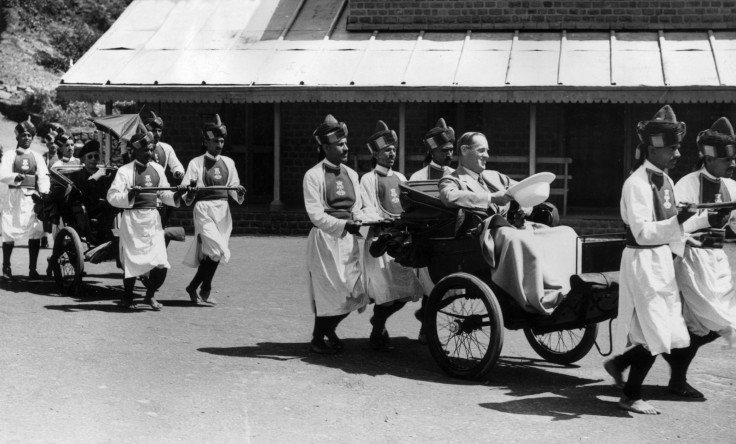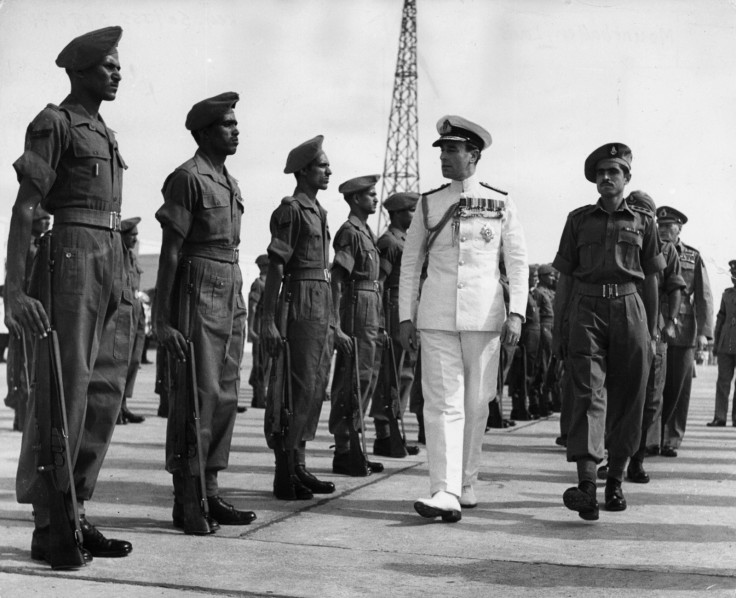Our children aren't taught the ugly truth about the British Empire - it's time for them to learn
Millions were displaced and countless murdered in India, as folk – who had lived peacefully – turned on each other.

The Viceroy's House, a feature film by Gurinder Chadha, director of the joyous Bend it like Beckham, is out on general release in March. It is a beautifully made, devastating expose of Winston Churchill's dirty tricks as India gained independence in August 1947.
The country was partitioned, millions displaced, and countless murdered, as folk, who had lived peacefully, turned on each other. Ever since then our historians and film and TV programme makers have framed this savagery in religious terms: Intemperate Hindus, Sikhs and Muslims slaughtered each other because they could not share the land.
Using newly discovered documents, Chadha shows how Churchill had well set plans to scythe through India because he was worried about the influence the USSR would have in that region. Lord Mountbatten, who was sent out there to organise British withdrawal, had no idea about this dark plan. Nor do today's Brits, Indians or Pakistanis. This state guards its wicked deeds and noxious secrets. Always did. Always will.
Those of us who were raised in one of the many lands of the old British Empire were not only subjugated and make aware of our lowliness, but well brainwashed. The history syllabus was tightly controlled. Inscrutable inspectors in hats came in and sat at the back of classrooms to check orders were being followed. Mr Kavi, our history teacher, was often taken away and questioned sternly because he was suspected of being an ardent admirer of Gandhi and Nehru. They were right. He was subversive.
After class, he would sit with us in the grounds and tell us about British political cunning and the undeclared colonial strategy of divide and rule. He reminded us that nations taken over by Europeans had been great civilisations, that we weren't congenitally weak and childlike, or irrecoverably tribal.
Did his pupils believe or trust him? Not really. A few of us were budding liberationists, yet along with more pliant schoolmates, were swept away by the epic saga: The Empire was a wondrous achievement – plucky small islanders took over most of the globe. Brought railways, legal systems, police forces, flushing lavatories, capitalism, Dickens and Shakespeare, Cliff Richards, Ovaltine, tinned cheese and pink blancmange! We yearned to please Britannia, to be her adopted children.
After independence, the whitewashed past was reassessed in previous colonies, but there were few books providing counter-narratives to the great imperial myths. In 1972, I was one of those Ugandan Asians exiled by the dictator Idi Amin. In Oxford, where I was a postgrad student, that past was still being spun. At one posh college dinner, a senior lecturer loudly proclaimed: 'You overseas students are all the beneficiaries of the greatest empire in the world'.
My children, born in London, were also, sadly, taught about British glories and victories, hardly anything about the ignoble past . I read the great post-colonialist writers and also Marxist historians, but it is only in the last decade or so, that ugly truths about British rule have been exposed. (Over this same period 'patriotic' historians such as Niall Ferguson and Andrew Roberts have produced thunderous revisionist tomes for those who still cling to the moribund idea of the great British Empire).

Among the hidden horrible histories, is the role played by our government in the coup that led to Idi Amin gaining control of Uganda. President Obote, the first elected president of Uganda was threatening to nationalise British companies, including Barclays bank and Dunlop. Together with the US and Israel they welcomed Amin. As he started killing opponents and terrorising the people, one Foreign Office bureaucrat observed: 'We are close to Amin and are known to be close to Amin and some of the [international] odium may well rub off on us'.
Richard Slater, the High Commissioner wrote in a private missive: 'We cannot tell him to stop murdering people... my plea is for business as usual'. And so the tyrant carried on killing and British businesses carried on making profits until the expulsions of Asians when that special relationship collapsed.
In Jeremy Paxman's candid book entitled Empire: What Ruling the World Did to the British (Penguin, 2011) he describes both the brutal Indian uprising against the British in 1859 and the appalling revenge of the rulers who flayed, impaled and beheaded culpable and blameless men, women and children. It was only in 2013 that Kenyan resisters, members of the Mau Mau, won their case for compensation against the government. They had been subjected to torture and had their human rights violated in colonial Kenya. So much for the civilised occupiers, so much for accuracy and truth telling.
If the nation is to free itself from delusions, it needs a more honest engagement with the past. As Paxman writes: 'If only the British could bring a measure of clarity to what was done in their country's name, they might find it easier to play a more useful and effective role in the world'.
Yasmin Alibhai-Brown is a journalist, columnist, broadcaster and author. Follow @y_alibhai
© Copyright IBTimes 2025. All rights reserved.






















